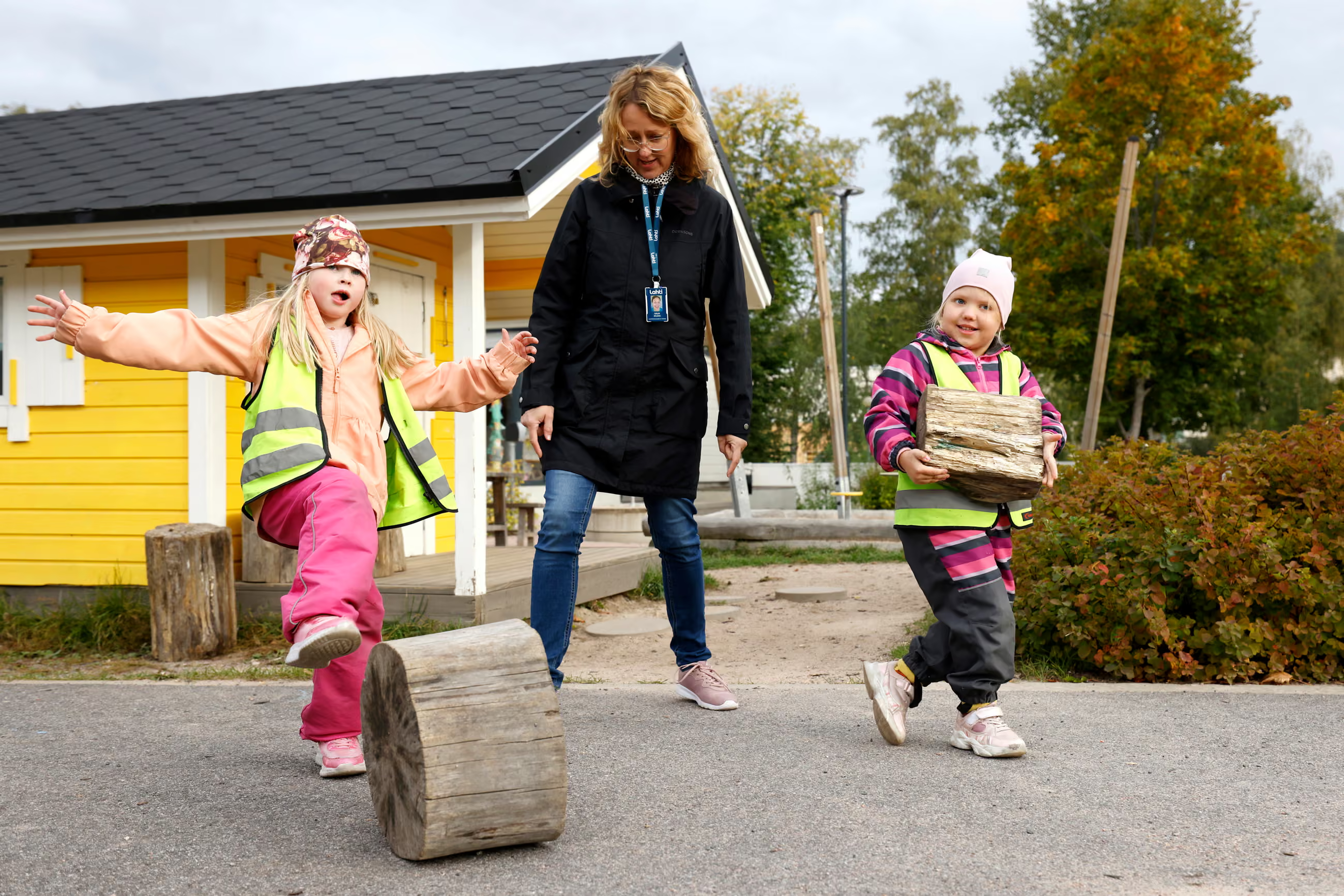
Applying to KAUST - Your Complete Guide for Masters & Ph.D. Programs (Upcoming Admissions)
Admissions Overview & Key Requirements

Finland is transforming traditional kindergarten spaces into natural mini-forests, and early results suggest that this nature-focused approach may significantly strengthen children’s immune systems, The Guardian reports.
Across the country, 43 kindergartens have received public funding to “rewild” their outdoor spaces by replacing artificial surfaces with natural forest environments. Soil, moss, berry bushes, fallen tree branches, compost beds, and native plants now fill playgrounds that once consisted of gravel and rubber flooring.
“Children need to touch nature — that’s how their immune systems learn,” explains Aki Sinkkonen, principal scientist at the Natural Resources Institute Finland (Luke), who closely observes the children's outdoor routines.
At the Humpula daycare in Lahti, staff and scientists have literally transported nature into the nursery. A large section of living forest floor — moss carpets, shrubs, berries, roots and all — was dug up and installed in the playground. Combined with vegetable beds, compost piles, and wetland stones, the nursery resembles a child-run ecological garden more than a typical kindergarten yard. Children grow carrots, potatoes, cucumbers, parsley, and even chilies, harvesting and cooking what they plant. When winter approaches, the crops fade — but the outdoor adventures do not.
This hands-on nature immersion is part of a two-year research project looking at how biodiversity enhancements affect the microbial composition of children’s skin, saliva and faeces. The study was the first of its kind. Blood samples were taken to look at immune defences, and a short questionnaire about infectious diseases was filled out every three months.
In total, 75 children aged between three and five across 10 urban daycare centres took part in the study. It compared “rewilded” daycare centres such as this with others covered in asphalt, sand, gravel and plastic mats. A year later, it found children playing in the green kindergartens had less disease-causing bacteria – such as Streptococcus – on their skin, and stronger immune defences. Their gut microbiota showed reduced levels of Clostridium bacteria – associated with inflammatory bowel disease, colitis and infections such as sepsis and botulism. Within 28 days it found an increase in cells in the blood – called T regulatory cells – that protect the body from autoimmune diseases. Other research showed that in just two weeks children’s immune system regulation could be improved by playing in a sandpit enriched with garden soil.
The human body contains trillions of bacteria, viruses and fungi, which are essential to how we function. Research shows external micro-biodiversity (such as bacteria and fungi) is transferred into the body through touch or ingestion.
Even breathing counts: the air has its own microbiome, which is associated with tree and plant species in the surrounding area. Soil – home to 90% of the world’s fungi – also feeds the microbiome in the air.
Previous research found that early exposure to green space was linked to a healthy immune system, but it was unclear if this was causation or correlation. The Finland study suggests it could be causal. An Australian study published last year corroborated the findings, showing children playing with a range of different soils had better gut health and a stronger immune system.
Interest in Finland’s approach is spreading. In Helsinki, Poutapilvi-Puimuri daycare center is being redesigned, with the help of a €30,000 (£25,000) government grant, into a nature-immersive campus with trees, stones, gardens, and wild zones. Educators emphasize that outdoor learning also supports problem-solving, curiosity, confidence, and risk-handling skills.
Complementary research from the University of Sheffield showed that hedge barriers around school playgrounds can reduce air pollution. Hunter’s Bar infant school in Sheffield created a 70-metre-long hedge of plants and shrubs that wraps around the playground, which is close to a busy road. Nitrogen dioxide (NO2) concentrations in the playground were reduced by 13% six months after planting, and further decreases are expected as the hedge matures.
Share

Applying to KAUST - Your Complete Guide for Masters & Ph.D. Programs (Upcoming Admissions)
Admissions Overview & Key Requirements

An mRNA cancer vaccine may offer long-term protection
A small clinical trial suggests the treatment could help keep pancreatic cancer from returning

Registration Opens for SAF 2025: International STEAM Azerbaijan Festival Welcomes Global Youth
The International STEAM Azerbaijan Festival (SAF) has officially opened registration for its 2025 edition!

Young Leaders Union Conference 2025 in Paris (Fully Funded)
Join Global Changemakers in Paris! Fully Funded International Conference for Students, Professionals, and Social Leaders from All Nationalities and Fields

Yer yürəsinin daxili nüvəsində struktur dəyişiklikləri aşkar edilib
bu nəzəriyyənin doğru olmadığı məlum olub. Seismik dalğalar vasitəsilə aparılan tədqiqatda daxili nüvənin səthindəki dəyişikliklərə dair qeyri-adi məlumatlar əldə edilib.

Lester B Pearson Scholarship 2026 in Canada (Fully Funded)
Applications are now open for the Lester B Pearson Scholarship 2026 at the University of Toronto!